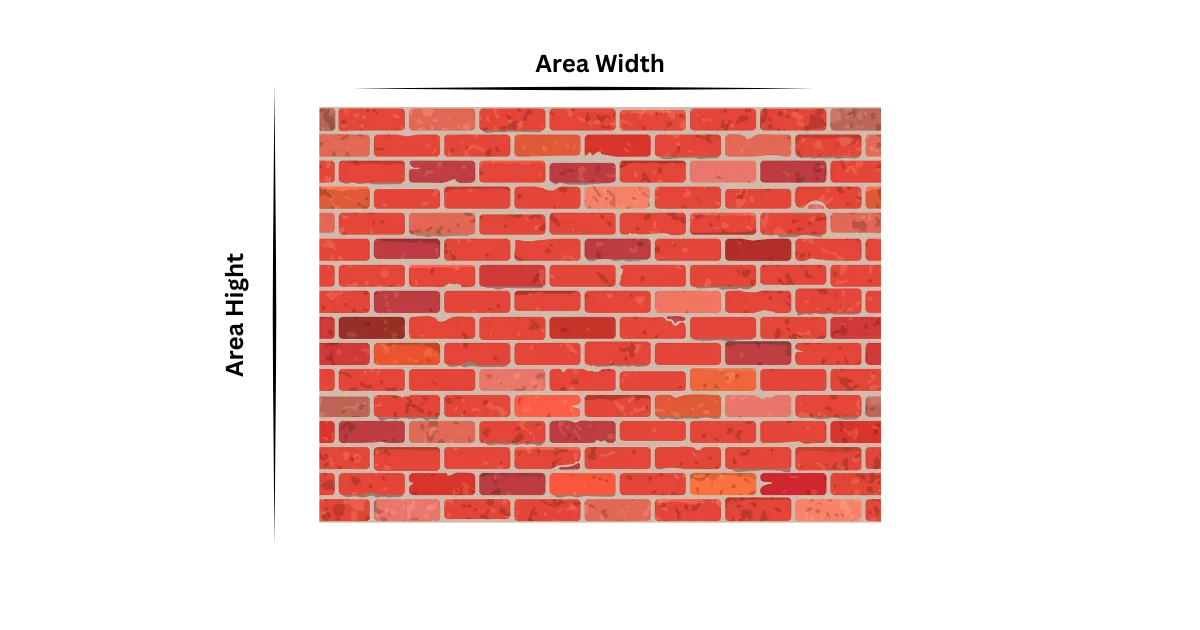Brick Paver Calculator for Perfect Outdoor Project Estimates
That beautiful brick patio or winding garden path starts with one crucial question: “How many pavers do I actually need?” Order too few, and your project stalls. Too many, and you’re stuck with expensive leftovers.
Specialized paver calculators take the guesswork out of outdoor projects. Whether you’re planning a patio, walkway, or driveway, these tools help you get quantities right the first time. Let’s explore how they work for different applications.
Paver Calculator Basics
Unlike wall calculators, paver tools account for:
- Horizontal surfaces (different load requirements)
- Tighter joints (typically 1/8″-1/4″ vs 3/8″ for walls)
- Pattern complexity (affects cutting waste)
Most ask for:
- Project area (length × width)
- Paver size (including thickness)
- Joint width
- Pattern selection
Pro Tip: Always buy pavers from the same dye lot – colors vary between batches!
Patio Calculations Made Simple
Calculating for patios requires special considerations:
For a basic rectangular patio:
- Measure length × width
- Add 10% for cuts/waste
- Add 5% extra for complex patterns
Example: 12’×14′ patio (168 sq ft)
Running bond: 168 × 1.10 = 185 sq ft
Herringbone: 168 × 1.15 = 193 sq ft
Key Factors:
- Slope (1/4″ per foot away from house)
- Base preparation (crushed stone depth)
- Edge restraints
Garden Wall Calculations
Low garden walls (under 3 feet) use similar math to patios but:
- Calculate face area (length × height)
- Account for double-sided walls
- Include cap stones in totals
Material Tip: Use frost-resistant bricks for outdoor walls in cold climates.
Walkways & Sidewalks
These linear features need special attention:
- Calculate running feet (length)
- Determine width (typically 3-4 feet)
- Add 15% for curves/cuts
Example: 30′ long × 3′ wide walkway
90 sq ft × 1.15 = 104 sq ft
For Curved Paths:
- Mark outline with garden hose
- Break into segments
- Calculate each separately
Driveway Calculations
Driveways demand more robust calculations:
- Surface Area: Length × Width
- Base Material: 6-8″ crushed stone
- Edge Restraints: Linear feet
- Special Pavers: 2-3″ thick for vehicles
Cost Factors:
- 10−
- 10−30/sq ft installed
- Permeable options cost more
- Complex patterns increase labor
Indoor Floor Applications
Brick floors bring warmth indoors but need:
- Thinner pavers (1-1.5″)
- Mortar bed calculations
- Expansion joints
- Sealer requirements
Pattern Impact on Quantity
Your chosen pattern significantly affects materials:
| Pattern | Extra Needed | Best For |
| Running Bond | 5% | Simple installations |
| Herringbone | 10-15% | High-visibility areas |
| Circular | 15-20% | Feature elements |
| Random | 10% | Natural looks |
Top Calculator Picks
Best Free Online:
- Belgard Paver Calculator
- Unilock Design Tool
Best Mobile App:
- Pavestone Project Planner
Best for Cost Estimates:
- Home Depot Paver Calculator
Avoid These Common Mistakes
- Skipping base calculations – The foundation matters most
- Underestimating edge materials – Often forgotten
- Ignoring slope – Leads to drainage issues
- Forgetting delivery access – Pavers are heavy!
Your Brick Calculation Questions Answered
Final Tips
Now you’re ready to plan your perfect hardscape project. Remember:
- Measure twice, order once
- Buy all materials at once for color matching
- Consider renting a plate compactor for installation
Your dream outdoor space starts with proper planning – happy paving!
Pro Tip: Snap photos of your calculations to share with suppliers for verification.

